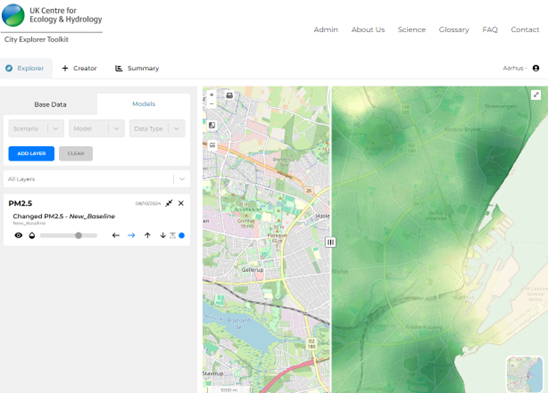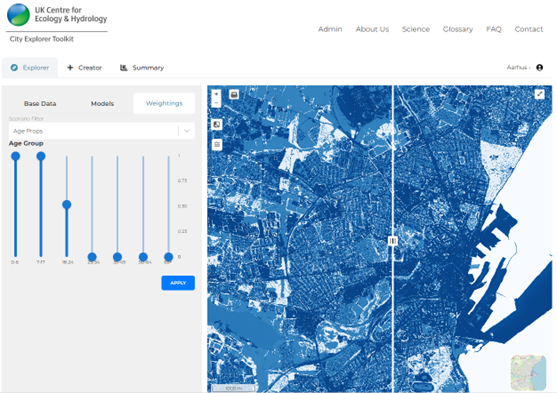Professor Laurence Jones, Wetlands Grasslands and Croplands science group leader at UKCEH, shows how planning tools can help design better outcomes for young people in cities...
Young people care deeply about the future and feel strongly about the environment they live in. At the same time they are more affected by urban environmental pressures because their bodies are still developing. Young peoples’ brains are still developing into their late teens and air pollution can affect brain development. Both the very young and the very old are at greater risk of health impacts caused by heatwaves.
The green and blue spaces in our cities — parks, trees, rivers, lakes — are vital to the fabric of city life. They cool our streets during heatwaves, reduce air pollution, and provide much-needed peace and quiet in a world full of noise. At UKCEH, we have been creating tools to reimagine urban spaces, making them healthier, more sustainable, and more liveable for all.
One of our key developments is the City Explorer Toolkit, an interactive web-based tool designed to support urban planners. A key feature of the toolkit is that we can target interventions to benefit particular groups in society.
World Cities Day this year focuses on the youth, our future! So we’re pleased to show how the toolkit can help target actions in cities to benefit young people.

The toolkit runs models to calculate features such as the amount of air pollution that urban trees remove, and the change in concentration of fine particulate air pollution – PM2.5 [see an example above for Aarhus in Denmark]. It can also create opportunity maps to highlight the best places to plant street trees for better urban cooling.
These can be targeted to focus decision-making on different age groups, or levels of deprivation in cities – see the example below where the user can set weightings to identify the areas which best provide cooling to young people.

We have toolkits running for Aarhus in Denmark and Portsmouth in the UK, and have applied the models in cities across the globe such as Dakar in Senegal, Kigali in Rwanda, Medellín in Colombia, and Chengdu in China. If your city is interested in using the City Explorer Toolkit, we’d love to hear from you! Contact us at cities@ceh.ac.uk
Together, we can create urban environments where both people and nature can thrive.
